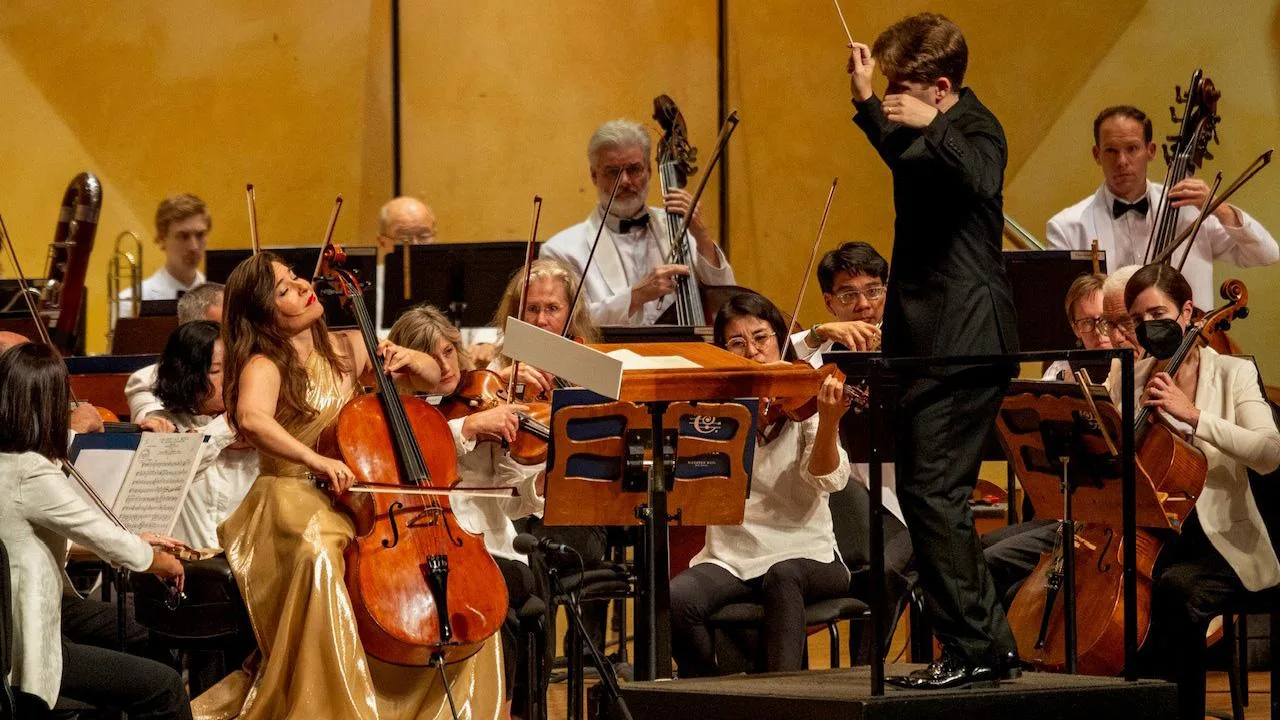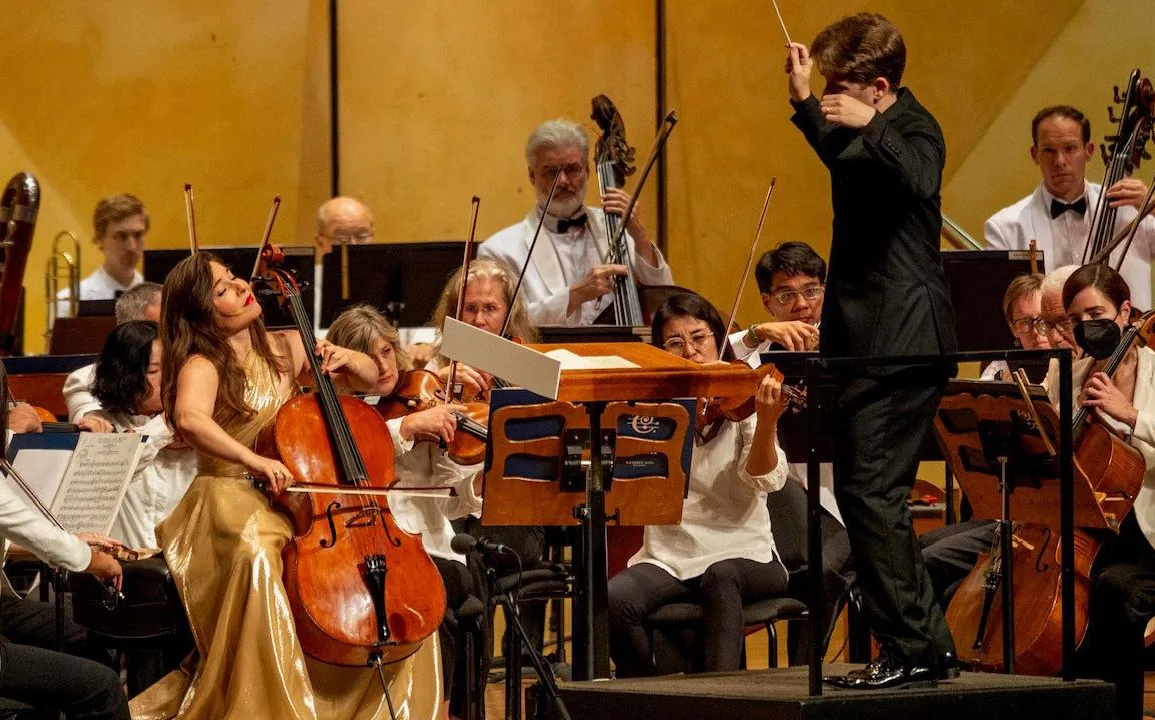 Alisa Weilerstein, left in gold gown, and the Chicago Symphony Orchestra are conducted by Joshua Weilerstein on Aug. 17, 2023, at the Ravinia Festival. (Emily Waler / Ravinia Festival)
Alisa Weilerstein, left in gold gown, and the Chicago Symphony Orchestra are conducted by Joshua Weilerstein on Aug. 17, 2023, at the Ravinia Festival. (Emily Waler / Ravinia Festival)
For the second half of its Ravinia Festival concert this past Thursday — a concert that could have been dubbed “Art and Politics” — the Chicago Symphony Orchestra delivered a bravura performance of Russian composer Dmitri Shostakovich’s extraordinary “Symphony No. 5” and it couldn’t have been more timely in subtle way.
Thanks to our sponsors:
The work, which debuted in the Soviet Union in 1937, can easily be appreciated for its tremendous dramatic power and masterful mix of classicism and emotional commentary. But coming as it did — with conductor Joshua Weilerstein providing an ideally limbed preface about Shostakovich’s complex political life at the time of the work’s premiere (including Soviet premier Joseph Stalin’s devastating earlier response to the composer’s modernistic opera “Lady Macbeth of the Mtsensk District”) — the impact of the symphony was intensified.
To start, however, some thoughts about the opening pieces on the program. First was the all too brief but richly evocative “Poem for Orchestra” by the African American composer William Grant Still that had its premiere by the Cleveland Orchestra in 1944, a year before the end of World War II. Then came British composer Edward Elgar’s “Cello Concerto in E Minor,” written in the wake of the horrors of the war, with Alisa Weilerstein, Joshua’s sister, the featured soloist. (Incidentally, the parents of these siblings also happen to be formidable musicians.)
Still’s piece (inspired by a poem by his wife, Verna Arvey) begins with a dramatic blast of sound that then shifts into a passage of lyrical romanticism. Strong emotional shifts came with lush orchestration — from the timpani and other percussion, to the power of the brass, and the use of the harp, celesta and strings, with powerful riffs by the cello and bass section as well.
Elgar’s “Cello Concerto,” in a fiery performance by Alisa Weilerstein, begins with the cello sounding an anguished, painful cry, with the soloist then joined by the low strings. From the start there is a sense of deep sadness and heartbreak, with the full orchestra adding some intense riffs. A frenetic bit of bowing then sets the mood with its speed and intensity, and the opening movement comes to an end.
A lyrical, deeply thoughtful segment of the work follows. And with backing from all the strings it suggests the musical equivalent of a diary. Then, moving from a deeply emotional, very personal quality the work takes on a wonderful, almost dance-like speed. And the mood shifts to a richly theatrical segment followed by a powerful burst of sound before returning to the more agonized tone of the cellist.
Those dramatic mood shifts continue with an almost frantic quality as the orchestra plays at high speed and immense power. (Alisa Weilerstein was called back to the stage for an encore and performed Bach’s “Suite No. 4 in E Flat.”)
And then came Shostakovich’s stunning symphony — a work that in many ways “saved” the composer from being politically silenced, yet at the same time made himself heard in powerful ways open to many different interpretations.
In fact, the piece begins with a blast of sound and a haunting sense of drama coming from the large orchestra’s many voices — all full of agitation, ferocity, high anxiety and then calm, with a subtle augury of something worrisome to come.
The work’s second movement (including a beautiful violin riff by Associate Concertmaster Stephanie Jeong) creates a slew of dramatically shifting moods, with an elaborate series of conversations among the richly instrumented orchestra. The dramatic third movement is full of enthralling voices and inner cries, and then all breaks out in the fourth and final movement that opens with a big blast of sound and feverish strength, high speed and excitement that of course might be interpreted in many different ways.
Art and politics can result in an exceedingly complex marriage.
Note: Coming up on Aug. 27 at Ravinia is a concert by the esteemed pianist Misha Dichter that will feature works by Debussy, Liszt, Brahms and Beethoven’s Piano Sonatas No. 7 and 10. For tickets visit ravinia.org or call 847-266-5000.
Follow Hedy Weiss on Twitter: @HedyWeissCritic


